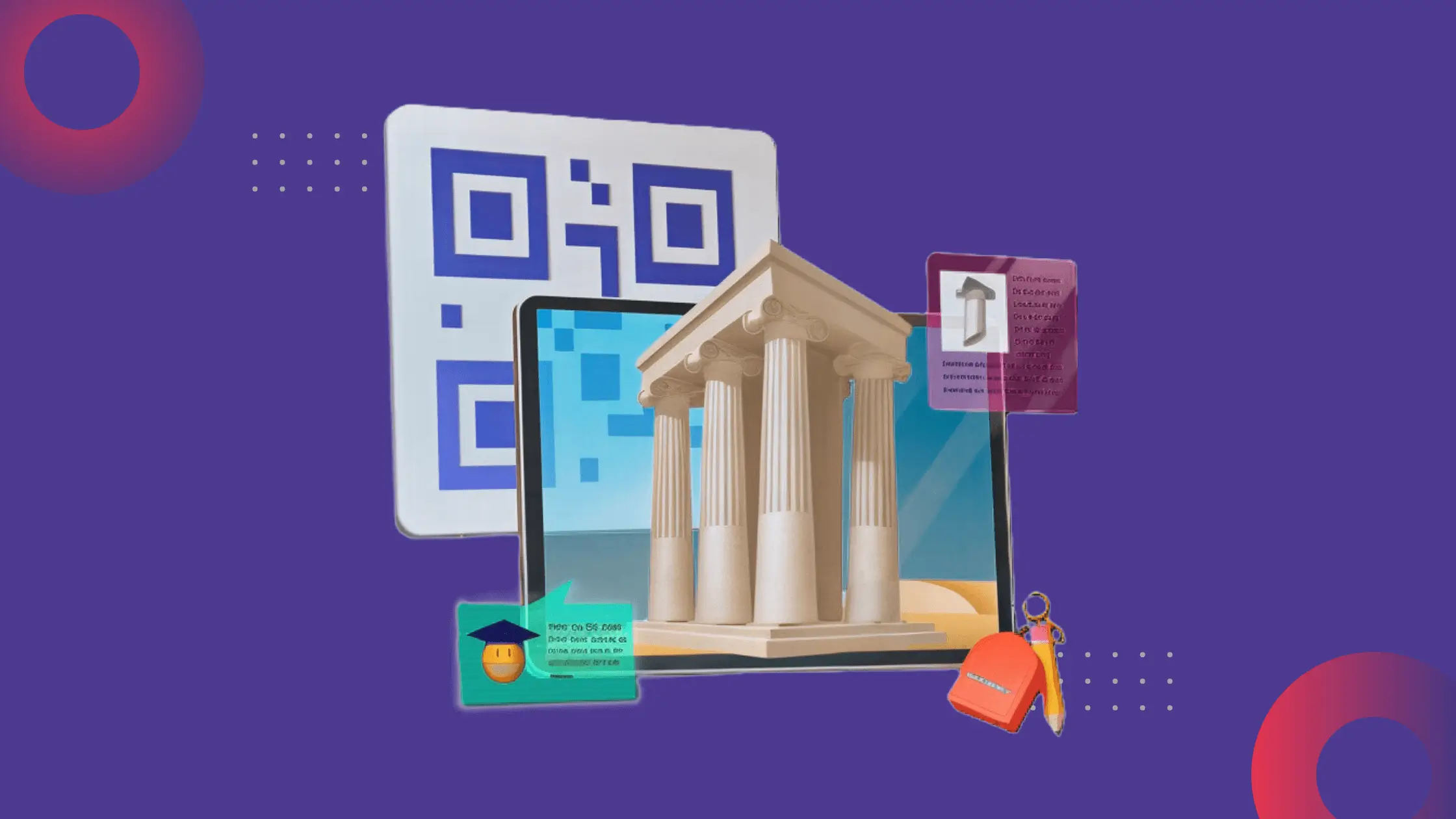Ready to transform your educational initiatives with AR?
Contact us today and explore how LetsNurture specializes in cutting-edge AR solutions to transform educational initiatives.


20
Nov. 24340
VIEWSEducation is rapidly evolving, and Augmented Reality (AR) in interactive textbooks is leading the charge, blending traditional learning with advanced technology. AR is improving learning practices by providing more engaging and immersive experiences through 3D models and interactive simulations.
In this blog, we will discuss the future of learning with AR, benefits of AR in education, practical applications, implementation challenges, ethical considerations and the future potential of AR in shaping new learning experiences.
Augmented Reality (AR) enhances real-world environments by adding digital information like images, videos, and 3D models onto physical objects. In education, AR enriches learning by embedding interactive elements directly into textbooks. This integration helps students connect theoretical concepts with real-world applications, encouraging deeper engagement and understanding.
AR transforms traditional textbooks into dynamic discovery and learning tools by integrating multimedia elements like interactive simulations, virtual experiments, and immersive historical reconstructions. This approach captivates students’ interest, encouraging them to actively explore and understand complex concepts.
Visualizing abstract ideas in 3D and interacting with virtual models helps students comprehend challenging topics more effectively. AR supports experiential learning, reinforcing memory retention through hands-on engagement and multisensory experiences.
AR-equipped textbooks cater to diverse learning styles and preferences. Students can navigate content at their own pace, access additional materials, and receive customized feedback, fostering self-directed learning and academic achievement.
AR technology enhances accessibility by offering alternative interaction modes such as audio descriptions or translations, meeting the needs of diverse learners. It promotes inclusivity by accommodating students with disabilities and ensuring fair access to educational resources.
In subjects like STEM, AR simulations enable students to learn beyond theoretical understanding – by encouraging them to perform virtual experiments, explore scientific phenomena, and cultivate critical thinking and problem-solving abilities within an immersive learning environment.
AR has a wide array of applications in science, such as enabling students to interact with complex biological processes, model virtual organisms, and explore planetary systems through AR simulations. In mathematics, AR visualizations assist in comprehending abstract concepts like geometry, calculus, and statistical analysis, making learning more intuitive and engaging.
In history, AR is used for recreating significant events, archaeological sites, and cultural artifacts in interactive 3D environments. Students can explore diverse historical periods, analyze primary sources, and gain a deeper understanding of global history and cultural heritage through experiential learning.
AR facilitates language learning by providing visual environments where students practice conversational skills with virtual characters, engage in interactive language exercises, and experience real-world contexts. This interactive approach accelerates language proficiency and promotes cross-cultural communication and understanding.
Integrating Augmented Reality into education involves some ethical and technical challenges which need to be taken care of.
Implementing AR requires significant investment in hardware, software development, and technical support. Ensuring access to AR-enabled devices and robust network infrastructure remains a barrier for many educational institutions, particularly those with limited financial resources.
Designing high-quality AR content that aligns with curriculum standards and educational objectives demands collaboration between educators, content developers, and technology experts. Developing scalable, interactive experiences that cater to diverse learning needs is essential for effective implementation.
Educators play a crucial role in leveraging AR effectively in classrooms. Providing comprehensive training programs, professional development opportunities, and ongoing support is vital to empower teachers with the skills and confidence to integrate AR into their teaching practices.
Beyond technical challenges, the integration of AR in education raises ethical considerations.
AR adoption could widen the digital divide by disadvantaging students who don’t have access to AR-equipped devices or reliable internet connections. Addressing these equity issues is vital to ensure all students have equal access to educational opportunities.
AR applications gather and analyze student data to personalize learning experiences. It’s important to establish clear policies on data usage, obtain parental consent for minors, and safeguard sensitive information to maintain ethical standards and protect student privacy.
Educators play a keyrole in teaching students to critically assess AR content and distinguish between virtual simulations from real-world facts. Developing these digital literacy skills empowers students to navigate AR technologies responsibly and ethically.
As Augmented Reality (AR) applications continue to advance, the future of interactive textbooks integrated with AR holds immense promise for transforming education.
Ongoing developments in AR hardware and software are set to improve the realism, interactivity, and accessibility of educational experiences. Continued developments in wearable AR devices, spatial computing technologies, and haptic feedback systems will enrich learning environments further.
The integration of AI-driven adaptive learning systems can offer personalized educational content tailored to students’ interactions and performance. This approach aims to enhance learning outcomes through customized instruction.
Extensive research into the long-term educational benefits and outcomes of AR-enhanced learning environments will provide valuable insights into its effectiveness and its ability to reshape educational paradigms globally.
In conclusion, interactive textbooks enhanced by Augmented Reality represent a revolutionary shift in how we approach education. They offer immersive, engaging, and personalized learning experiences that go beyond traditional methods. By leveraging AR, educators can ignite curiosity, nurture critical thinking, and prepare students for the complexities of our interconnected world.
As we navigate the ever-changing landscape of education, AR-powered interactive textbooks are poised to redefine learning methodologies – empowering educators and equip students with essential skills needed not only for the present but also for the future.
Contact us today and explore how LetsNurture specializes in cutting-edge AR solutions to transform educational initiatives.
